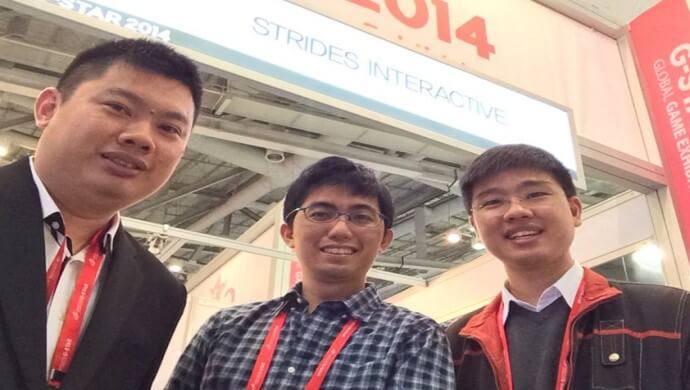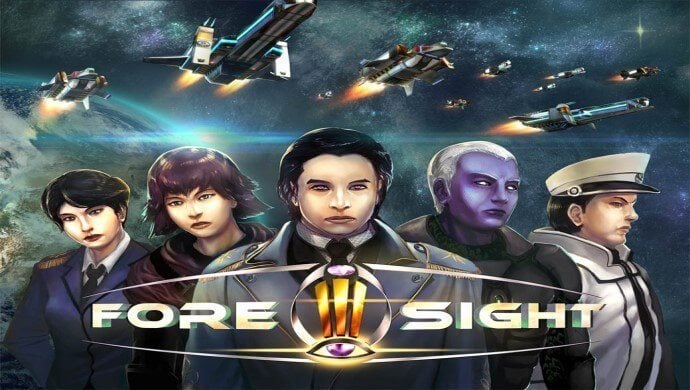The Singaporean game developer company shares their take on what makes a good game, and dispels myths around the profession

Left to right: Jeremy Lee, Basil Yeo (partner), Lim Yeen Fei (partner)
In Singapore, it seems to be an exciting time to work in the gaming industry.
“I think Singapore’s game development industry is growing with a lot of aspiring indies releasing great titles with great marketing done. We have a huge bunch of talents working in these studios,” says Jeremy Lee, Managing Director of Strides Interactive, in a written interview with e27.
As a game developer company, Strides is best known for its first commercial game Foresight, which it claims possess an array of technologies considered important for its future game launches.
“Currently, we’re still a PC-games company and have the quickest means of shipping a PC game than on other platforms. The potential for PC games is still there; Steam alone having [more than] 100 million users. As for mobile, we do have plans to make a mobile version of Foresight, using the premium model as well as carefully planned IAPs,” he says.
But the startup also sees a future in VR games, which comes with some challenges of its own.
“For VR, the current technology makes it difficult to justify having a device at home. The cost, time and effort increase the bar for the game itself. Thus, the best possible route will be to work on games to be played in game arcades. The game will be short but intense and immersive,” Lee explains.

Also Read:“Indonesia’s gaming industry needs to be king in its own homeland”
The company’s journey itself began in 2009.
“We were inspired by the fact that games development is probably the one single industry that can utilise all of our skills and talents at the same time. Eventually, we’ll also want to pass on whatever we’ve learned to the next generation of game developers in the future,” Lee says.
Like many other game developers, the Strides also have to battle several old stereotypes in the industry. One of the leading examples is the belief that game developing is not a ‘serious’, secure job.
“In my humble opinion, I think the first myth is more like … game development is gaming itself. That’s why you get terms like it being not secure or serious,” Lee opines.
To change the public’s perspective, there are efforts that developers can make.
“We can educate the general public by giving talks in schools, sharing insights into how a game is being made and the amount of efforts required even for the smallest of modules,” he answers.
Another point that Strides would like to voice out is their perspective about what makes a good game.
“A good game needs to be accepted, tested and to be criticised by the community. Community being the target audience and mainstream audience. On top of that, the game itself must be smooth ([with] reasonable performance [of at least] 40 fps), sleek to play, easy to learn but difficult to master,” Lee elaborates.
Also Read: How gaming is increasingly fertile ground for online dating
For the year 2016, Strides wants to focus on marketing Foresight as a finished product.
“Our in-house game engine will go for a major upgrade in processes, tech and more tools will be written to improve our productivity,” Lee explains, also adding that the company will also aim for several casual PC titles.
Strides will also proceed on their fundraising effort despite shortcomings that had happened during their seed round some time ago.
“We’ve initially raised a seed funding of S$50,000 (US$37,000) but not all came through. This has adversely affected our development processes and as a result, our game’s quality suffered. We’re currently looking for more funding to build our next game and the series of games that will follow,” he closes.
—
Image Credit: Stride Interactive
The post Strides Interactive: A good game should be “easy to learn, but difficult to master” appeared first on e27.